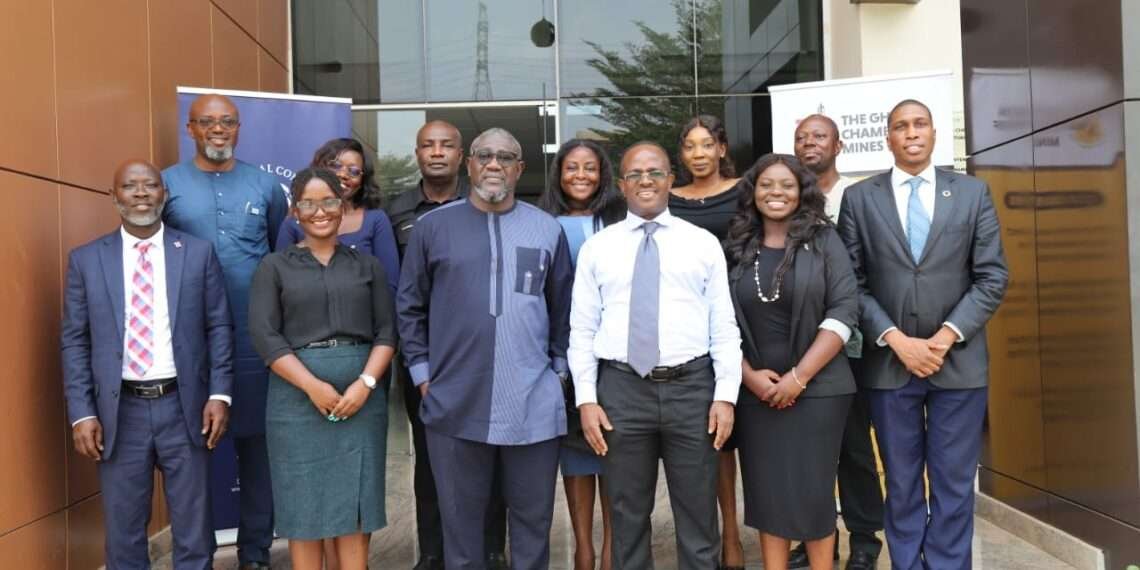In the pursuit of sustainable development, Ghana’s private sector stands as a crucial driver of change. As the world collectively works towards achieving the Sustainable Development Goals (SDGs) by 2030, it is imperative for Ghanaian companies to intensify their efforts and invest in initiatives that prioritize sustainability and social responsibility.
The recent call-to-action from the Executive Director of the UN Global Compact Network-Ghana, Tolu Delacroix, underscores the urgency of the matter. Delacroix emphasized the pivotal role of businesses in embracing sustainable practices and increasing their investments towards realizing the SDGs within the next six and a half years.
Addressing participants at a UN Global Compact CEOs Breakfast Meeting, Delacroix acknowledged the strides made in advancing the SDGs in Ghana but highlighted the need for a concerted and accelerated effort by private sector entities. While progress has been notable, much remains to be accomplished to ensure the goals are met by the looming 2030 deadline.
The call for Increased investment in sustainable development initiatives is not merely a moral obligation but a strategic imperative for businesses operating in Ghana. By integrating sustainability into their core operations, companies can enhance their long-term viability, resilience, and competitiveness in a rapidly evolving global landscape.
Furthermore, prioritizing sustainability can unlock new opportunities for innovation, efficiency gains, and market expansion. Sustainable business practices not only contribute to environmental preservation and social equity but also yield tangible economic benefits, driving growth and prosperity for both businesses and society at large.
In light of this, Ghanaian CEOs are urged to embrace a proactive approach towards sustainable development. This entails integrating sustainability considerations into their corporate strategies, supply chains, and stakeholder engagement processes. By embedding sustainability into the DNA of their organizations, CEOs can foster a culture of responsible business conduct and create lasting positive impact.
Collaborations and Partnerships
Collaborations and partnerships also play a pivotal role in advancing sustainable development efforts. By forging alliances with government agencies, civil society organizations, and other stakeholders, businesses can leverage collective expertise, resources, and networks to address complex challenges and drive meaningful change at scale.
Moreover, transparency and accountability are essential pillars of sustainable development. Ghanaian companies must prioritize disclosure of their environmental, social, and governance (ESG) performance, enabling stakeholders to assess their contributions towards the SDGs and hold them accountable for their actions.
The CEOs Breakfast Meeting discussed the latest global CEO survey by the UN Global Compact and Accenture and the SDG Stocktake Report and introduced the ForwardFaster Initiative.
Mr Delacroix noted that Ghana has done quite well in some areas of the SDGs but much more needed to be done in the next six and half years by accelerating efforts, especially from the private sector, which must make significant contributions to support the attainment of the goals.
He added that Ghana needed about $43 billion annually to finance the SDGs and government could not be relied upon to provide these resources, necessitating improvements in investments from companies to fill the gap.
Touching on the Forward Faster Initiative, which is a global platform for ambitious credible action guiding companies on where to make the biggest, fastest impact for 2030, Mr Delacroix said the initiative focused on five areas of action namely, gender equality, climate action, living wage, water resilience and finance and investment.
Importance of ESG Criteria in Investment Decisions
Mr Sulemanu Koney, Board Chairman of the UN Global Compact Network Ghana, stated that investors and other key stakeholders have become more aware of the importance of the ESG criteria in their investment decisions and this has caused many businesses to make efforts to integrate ESG into their operations and business strategies.
However, despite this, there is not enough progress happening to achieve the 2030 Agenda for Sustainable Development, necessitating the need to double our efforts. He noted that with the deadline for the 2030 Agenda for Sustainable Development fast approaching, there is the need to be more ambitious and put words into action.
It is in this direction that the UN Global Compact has introduced the Forward Faster Initiative, a global platform for ambitious credible action guiding companies on where to make the biggest, fastest impact for 2030.
This initiative addresses 5 areas of action namely, gender equality, climate action, living wage, water resilience and finance and investment, which have been selected because they have the power to accelerate progress across all 17 Global Goals.
The UN Global Compact Network Ghana is a special initiative by former UN Secretary General Kofi Annan, mandated to support businesses in aligning their operations with ten universal principles in the areas of Human rights, Labor, Environment, and Anti- Corruption and to contribute to the achievement of the Sustainable Development Goals.
The Network offers expertise, best practices, and technical resources and promotes sustainable practices among Ghanaian businesses by providing access to tools and benchmarking resources, guidance on sustainable reporting, facilitating accelerator modules on key sustainability topics and providing a platform for engagement through events and dialogues.
The UN Global Compact Is the world’s largest corporate sustainability and social responsibility initiative with more than 20,000 corporate participants with the objective to mainstream the 10 business sustainability principles in business activities all over the world.
As Ghana marches towards achieving the SDGs, the private sector must lead by example, demonstrating unwavering commitment and decisive action towards sustainability. By embracing this mandate, Ghanaian CEOs can propel their companies towards a future where prosperity is harmonized with environmental stewardship and social equity.
READ ALSO: NDC Women’s Organizer Slams Hawa Koomson Over Her ‘Move To Canada’ Comment





















